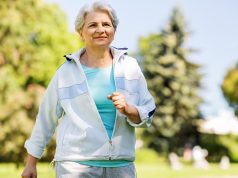Improvements in HRQOL, pain, fatigue, physical function; no lasting impact on HRQOL, fatigue
THURSDAY, Aug. 3, 2017 (HealthDay News) — Aerobic exercise seems beneficial for patients with fibromyalgia, with improvements in health-related quality of life (HRQOL), according to a review published online June 21 in the Cochrane Library.
Julia Bidonde, Ph.D., from the Norwegian Institute of Public Health in Oslo, and colleagues conducted a systematic literature review and included data from 13 randomized controlled trials involving 839 adults with a diagnosis of fibromyalgia. The trials compared aerobic training interventions versus no exercise or another intervention.
The researchers found that, compared with control, there were positive effects (expressed on a 0 to 100 scale with lower values best) for aerobic exercise in HRQOL (mean 56.08; absolute improvement, 8 percent; relative improvement, 15 percent); pain intensity (mean, 65.31; absolute improvement 11 percent; relative improvement 18 percent); stiffness (mean, 69; absolute difference in improvement, 8 percent; relative change in improvement, 11.4 percent); physical function (mean, 38.32; absolute change in improvement, 10 percent; relative change in improvement, 21.9 percent); and fatigue (mean, 68; absolute change in improvement, 6 percent; relative change in improvement, 8 percent). The risk ratio was moderate quality for withdrawals (1.25; 95 percent confidence interval, 0.89 to 1.77) in pooled analysis. Based on low-quality evidence from three trials on long-term effects, the benefits for pain and function persisted, but those for HRQOL and fatigue did not.
“Aerobic exercise appears to be well tolerated (similar withdrawal rates across groups), although evidence on adverse events is scarce, so we are uncertain about its safety,” the authors write.
Copyright © 2017 HealthDay. All rights reserved.







